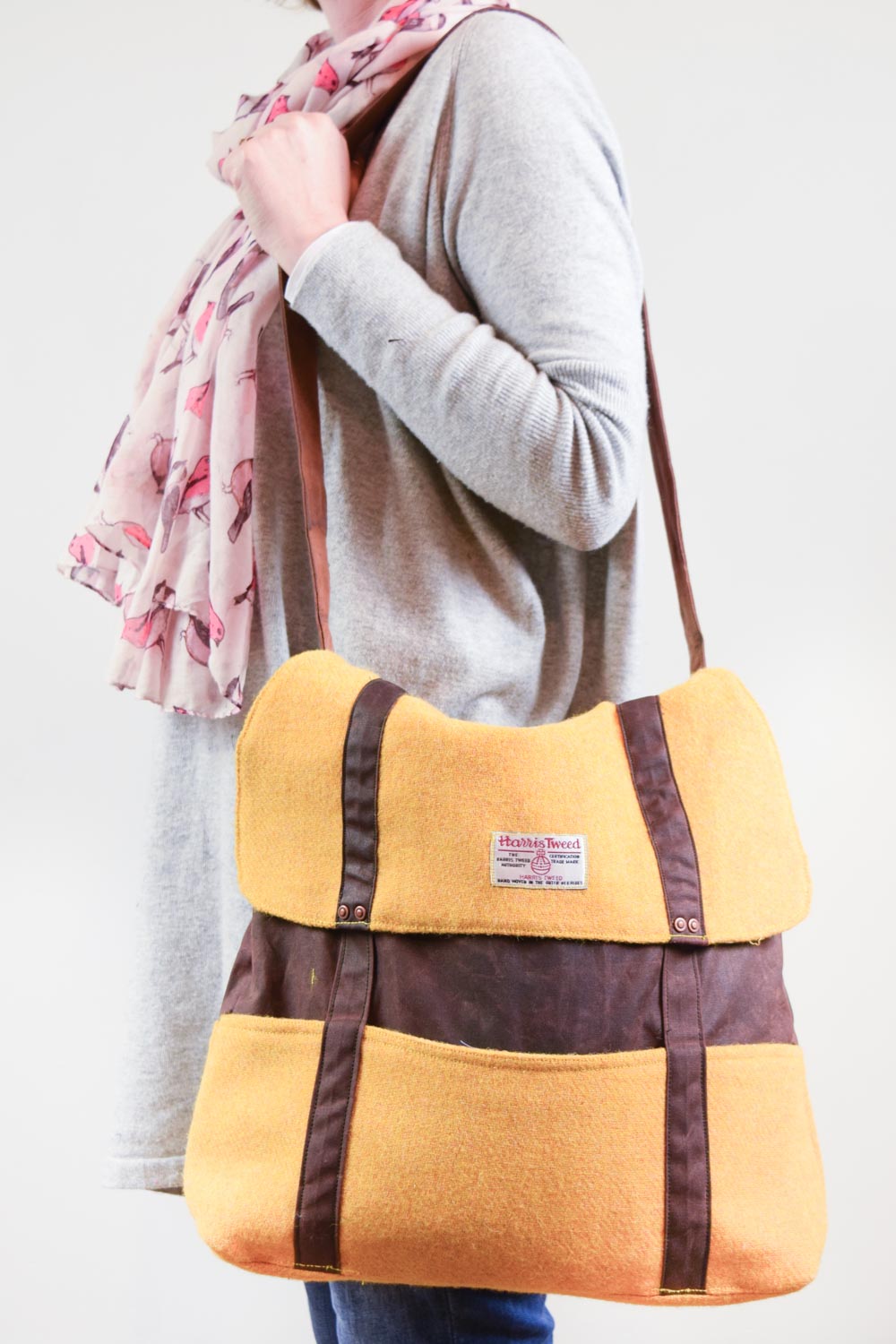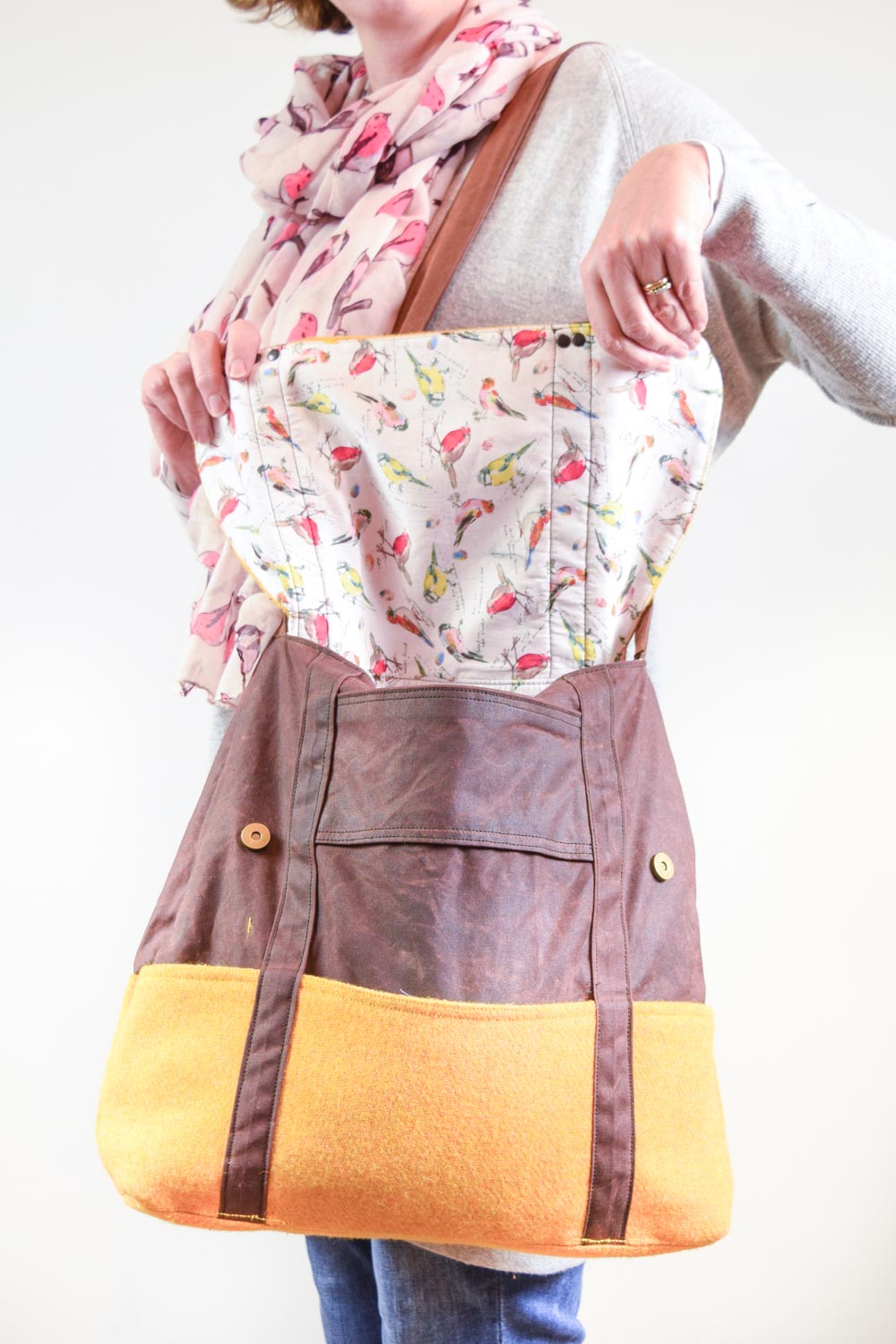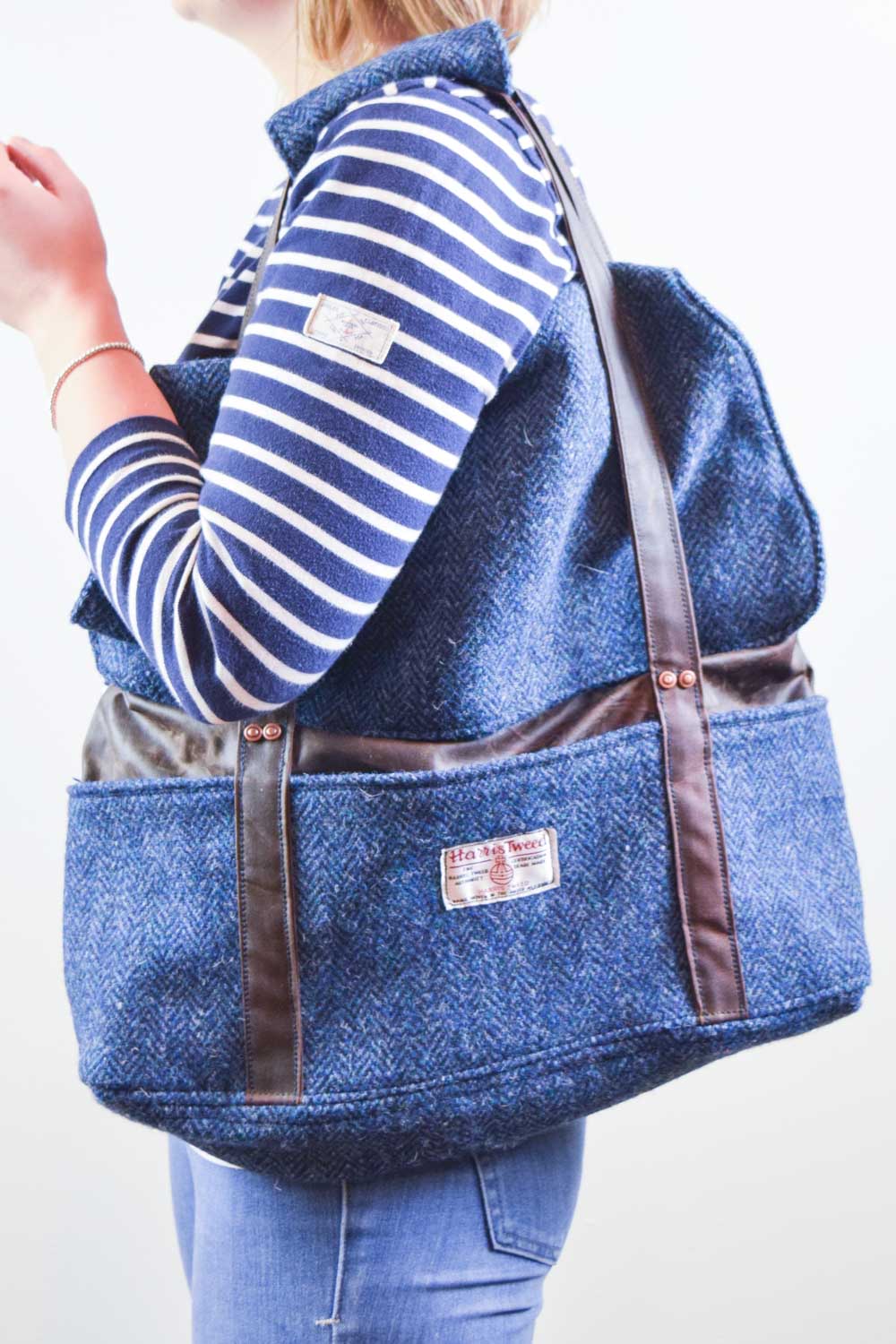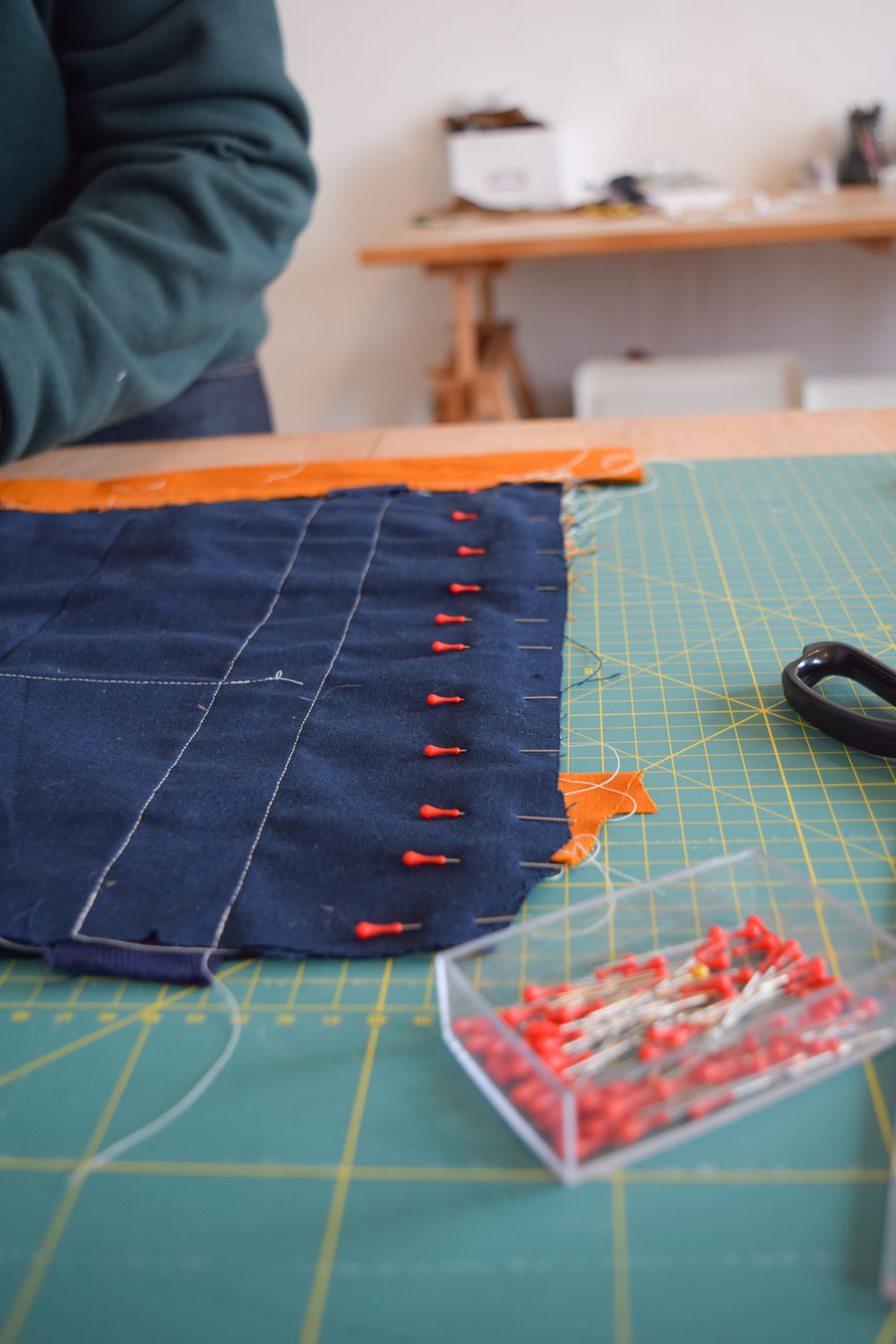THE COOPER BAG WEEKEND WORKSHOP
Student Resource Page
WORKSHOP LENGTH
2-day weekend workshop, 10am - 5pm both days
TOPICS COVERED
Using an industrial Sewing Machine; the use of heavier weight fabrics; linings; patch pockets; using hardwares such as magnetic closures, lobster clips, rivets, D-rings, magnetic snaps, buckles, webbing, and velcro.
OUTCOMES
The Cooper Bag is a versatile pattern, giving you three different options from one basic design: a backpack, a messenger bag, or a satchel (doubles as a bike pannier).
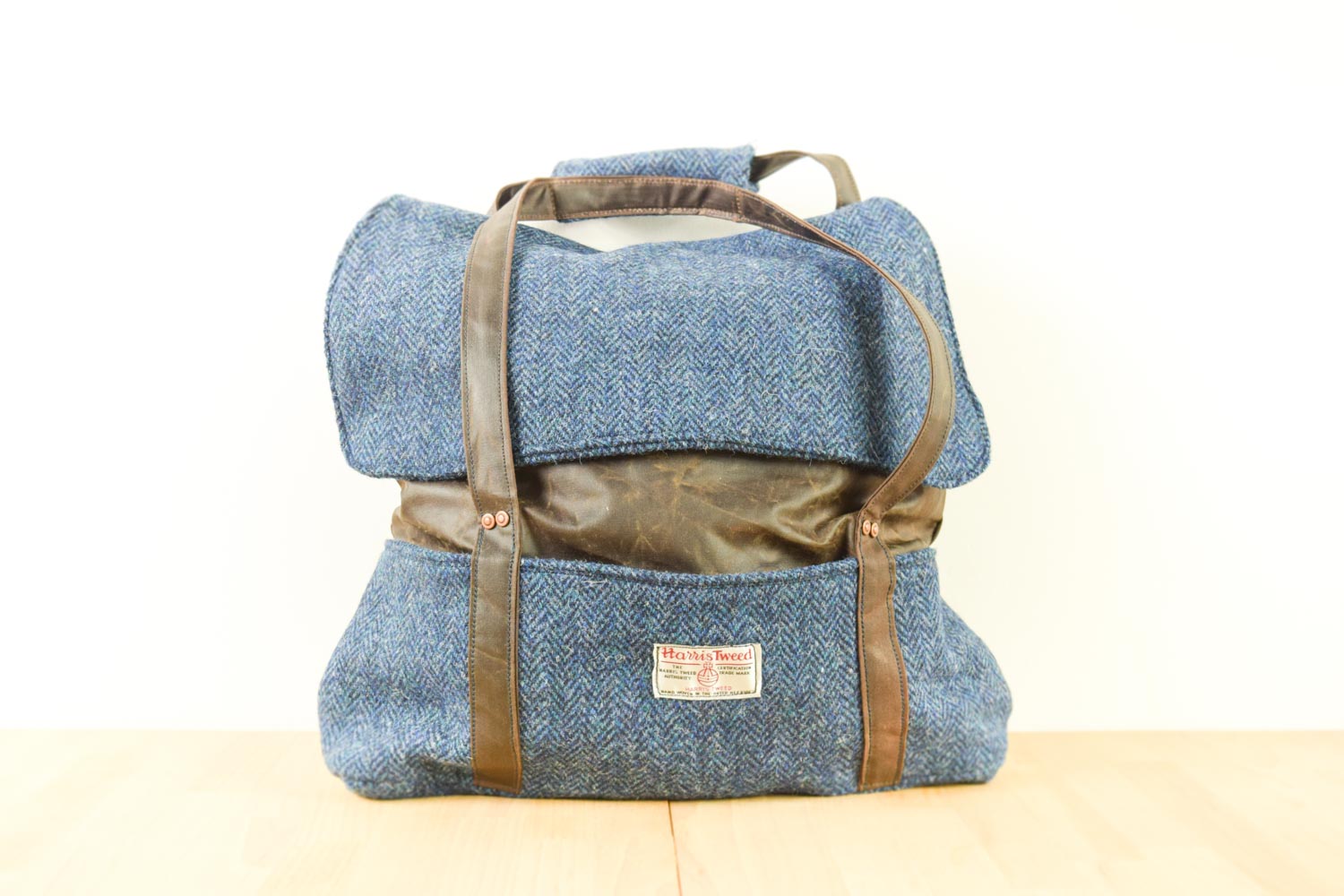
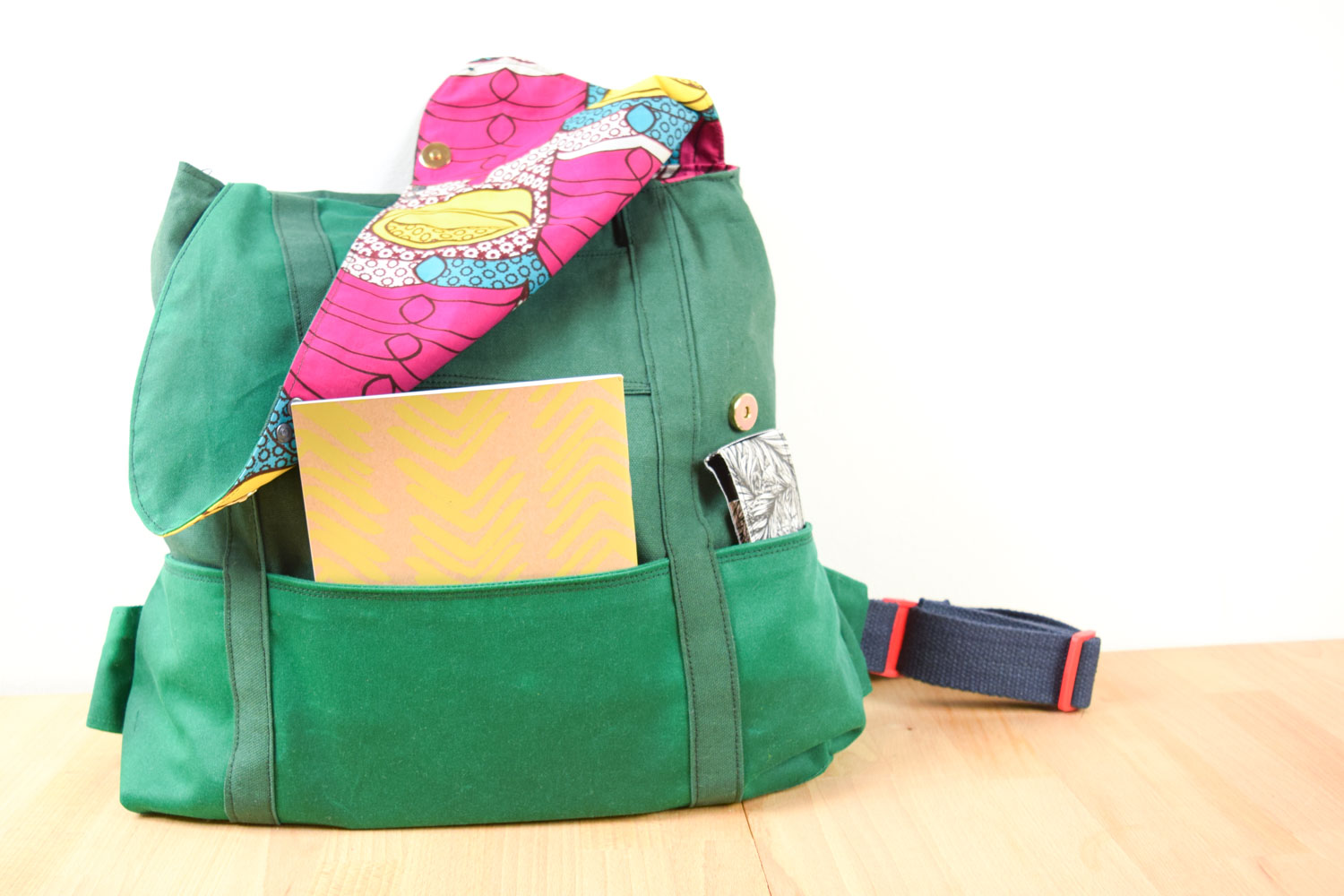
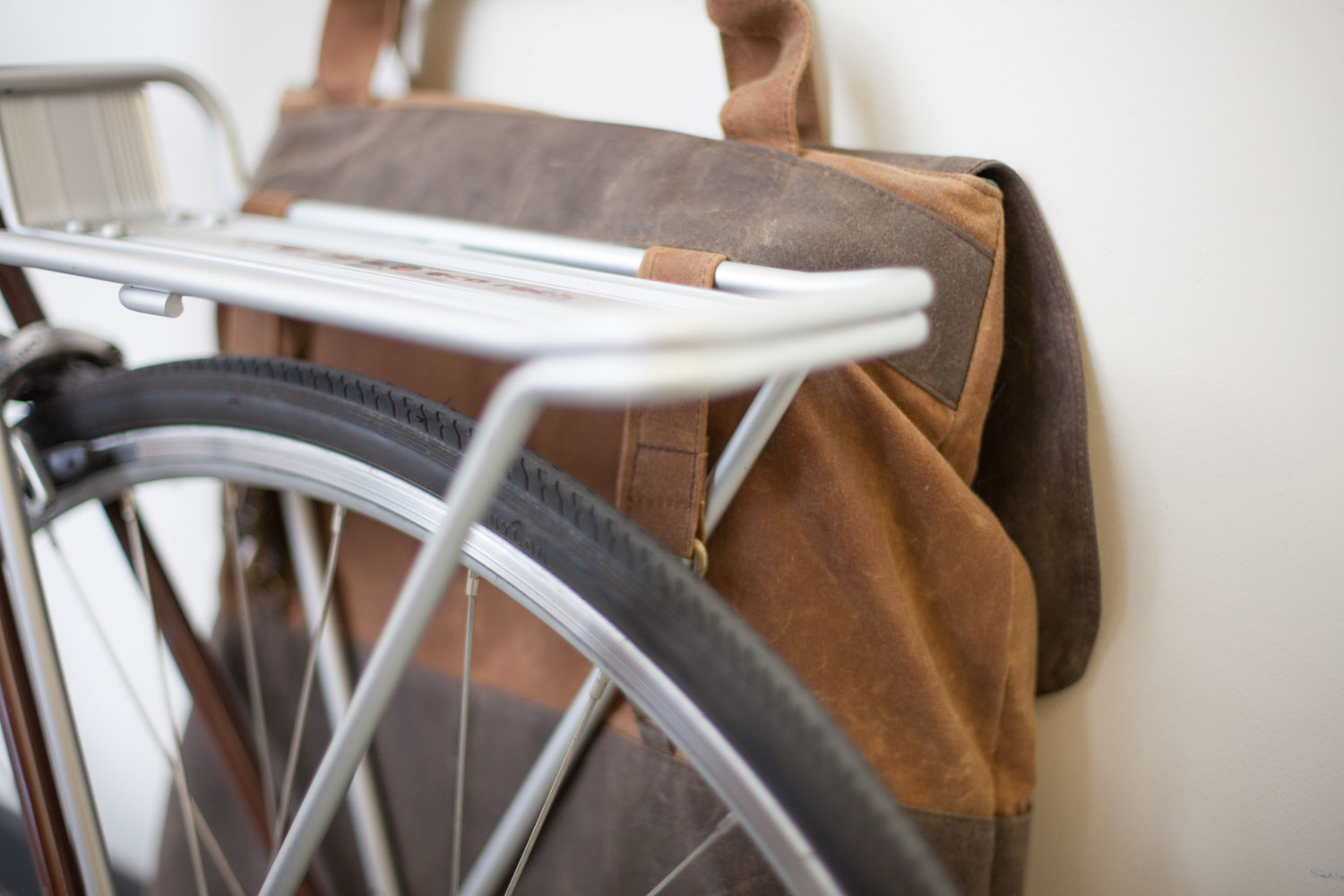
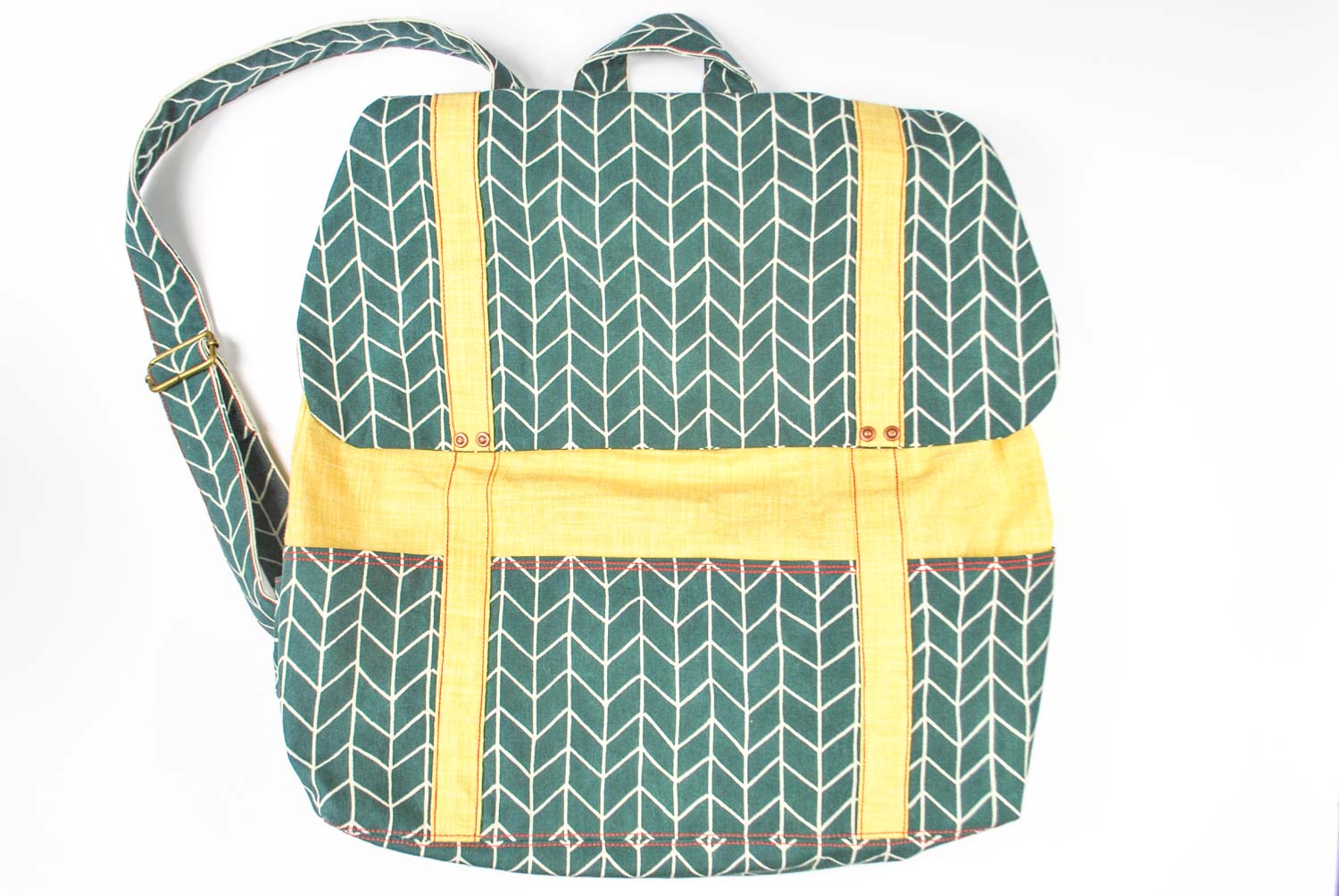
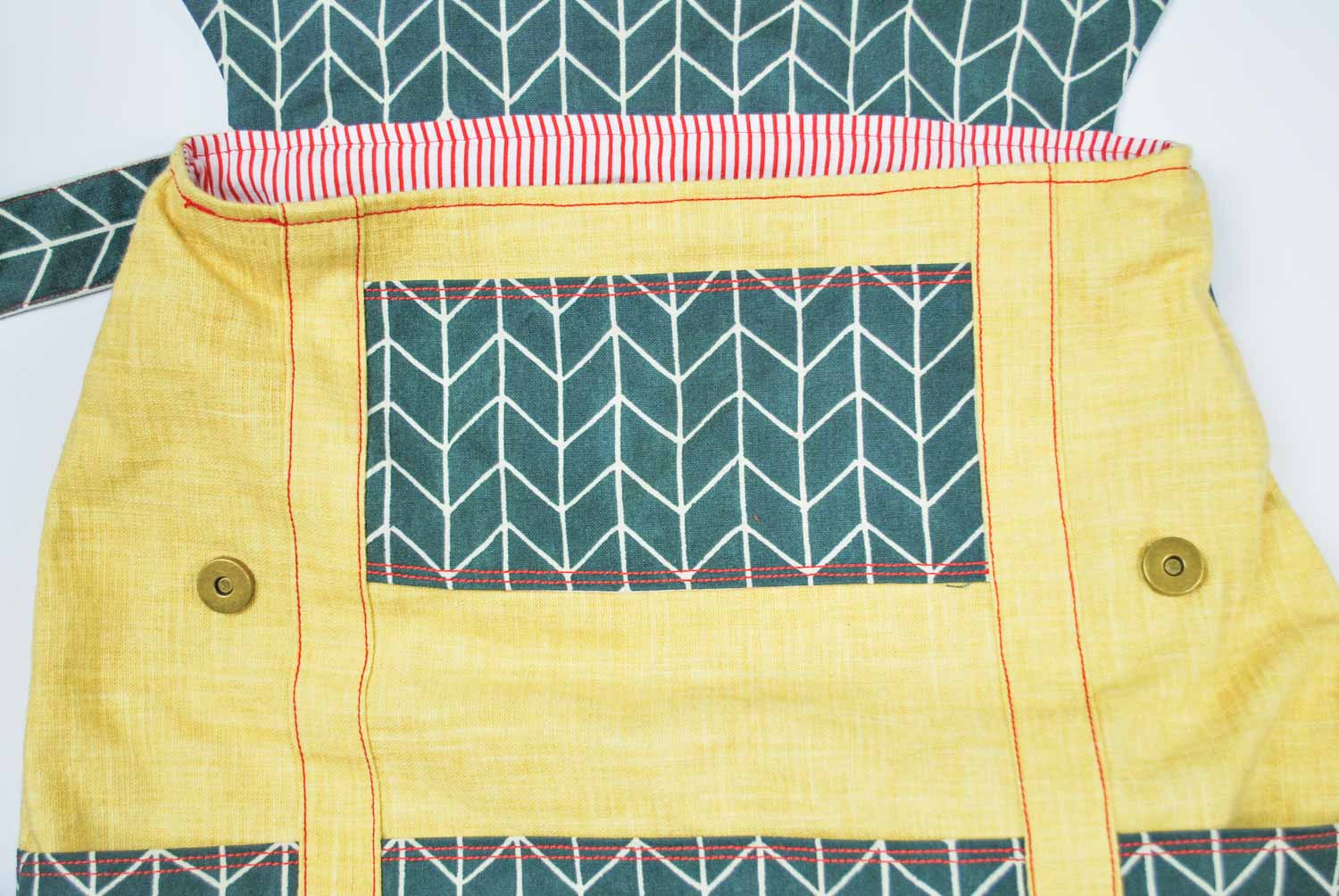
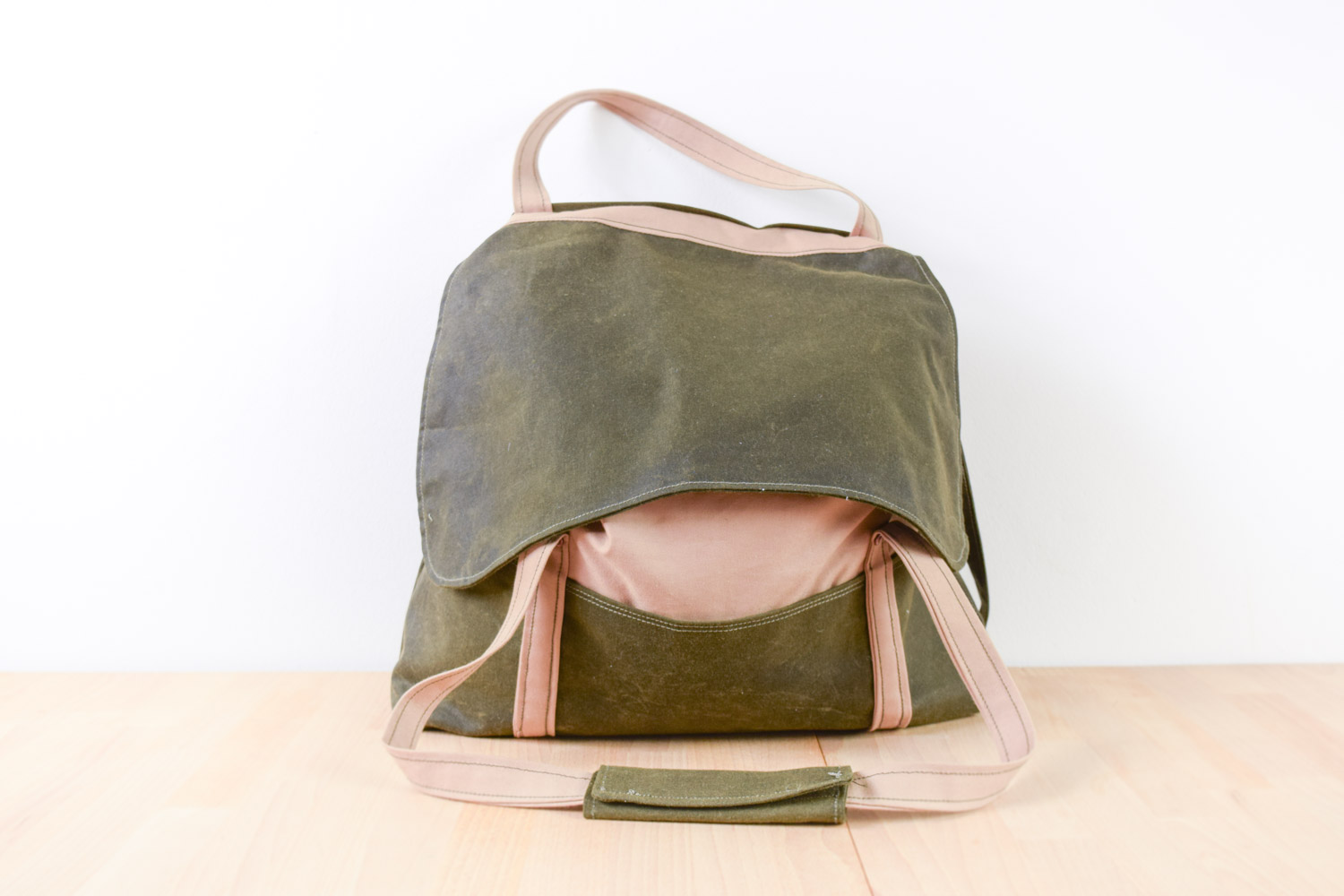
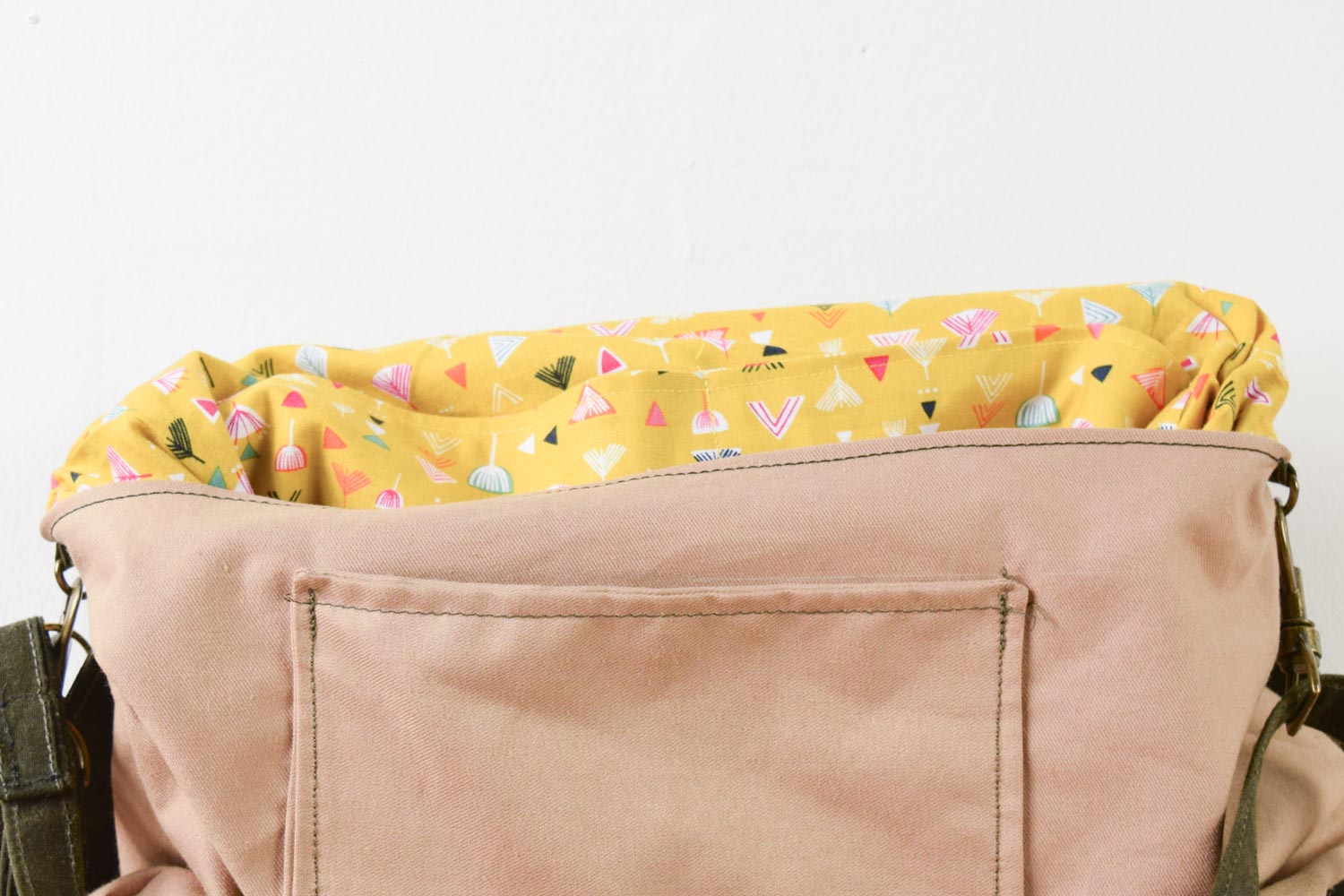
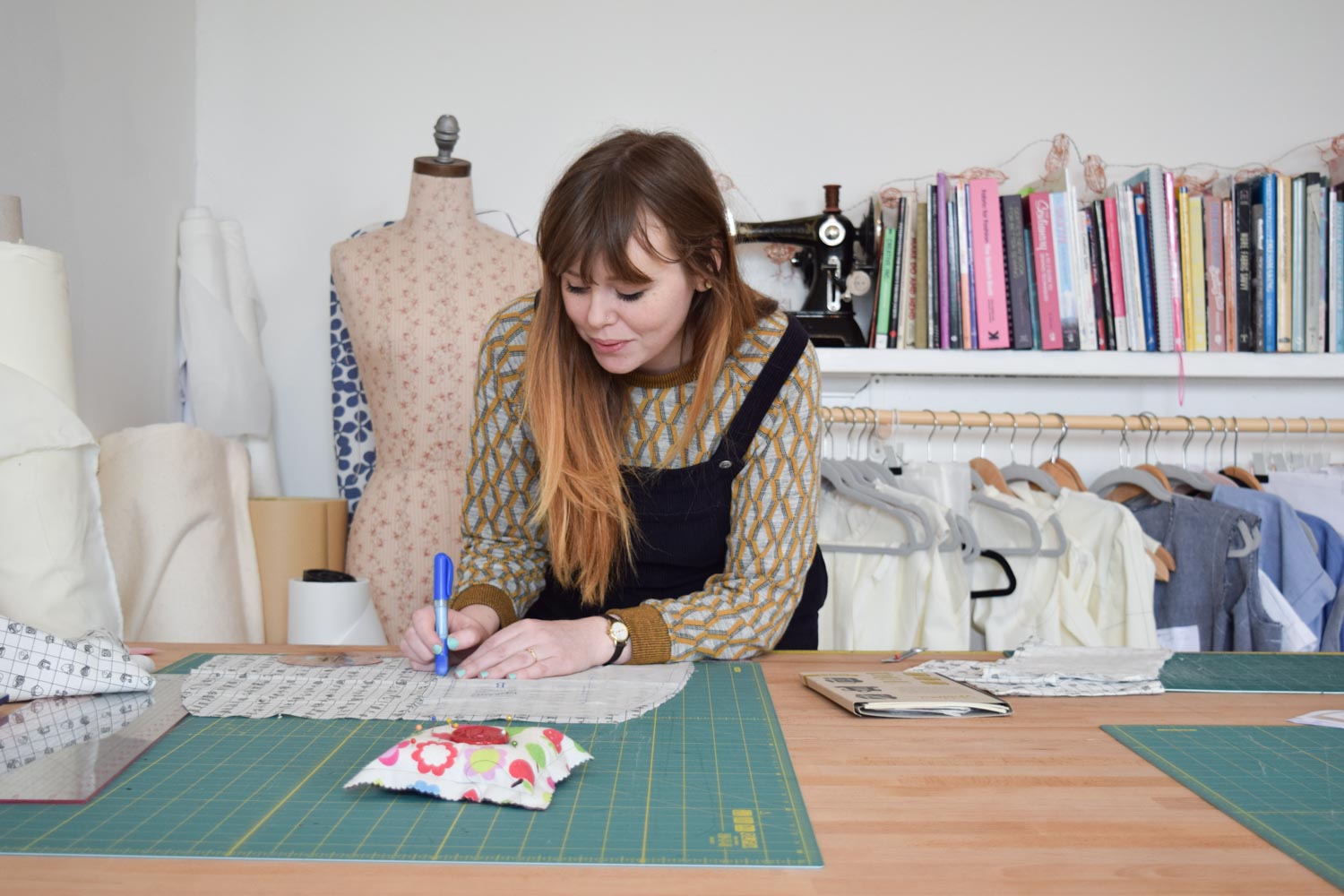
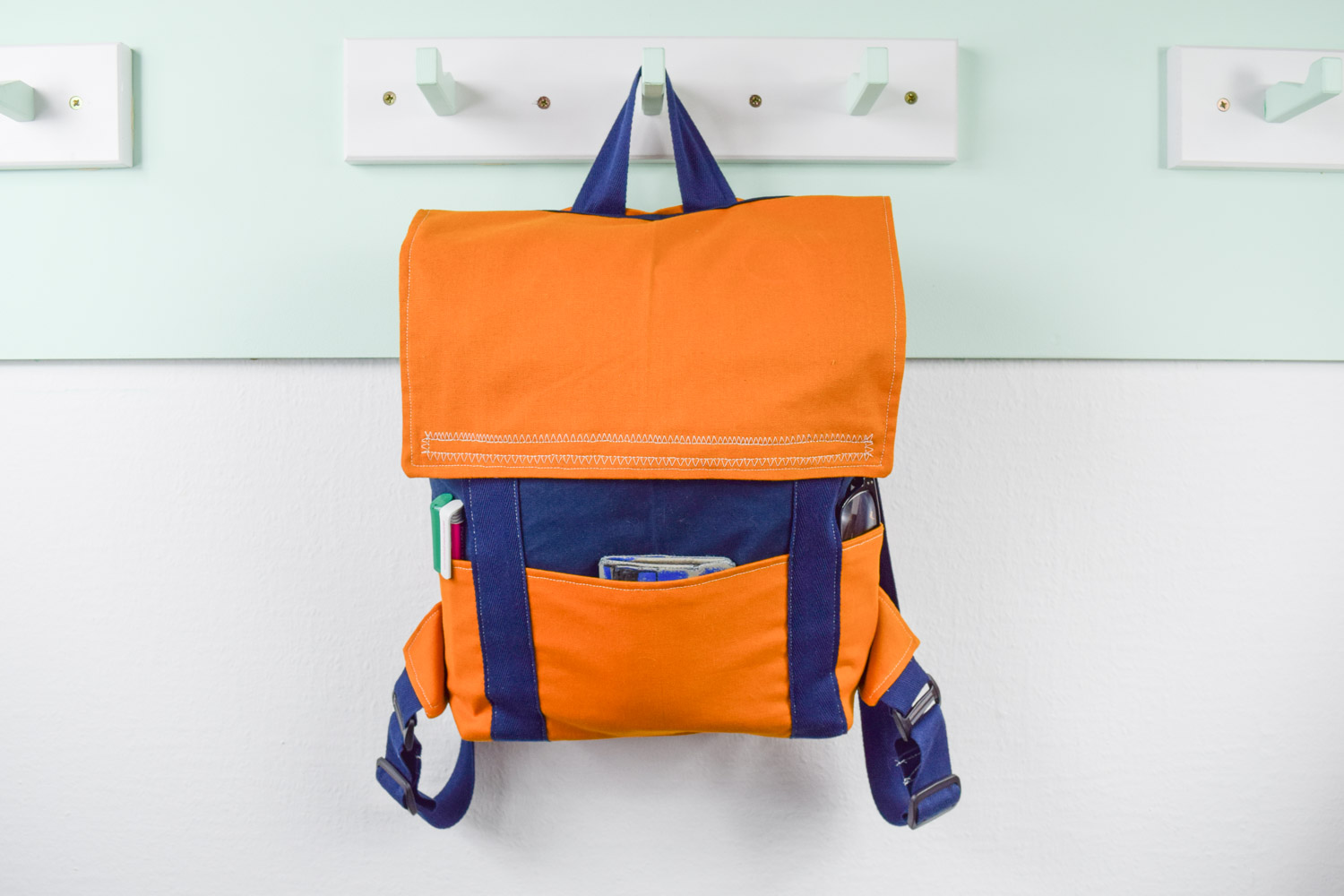
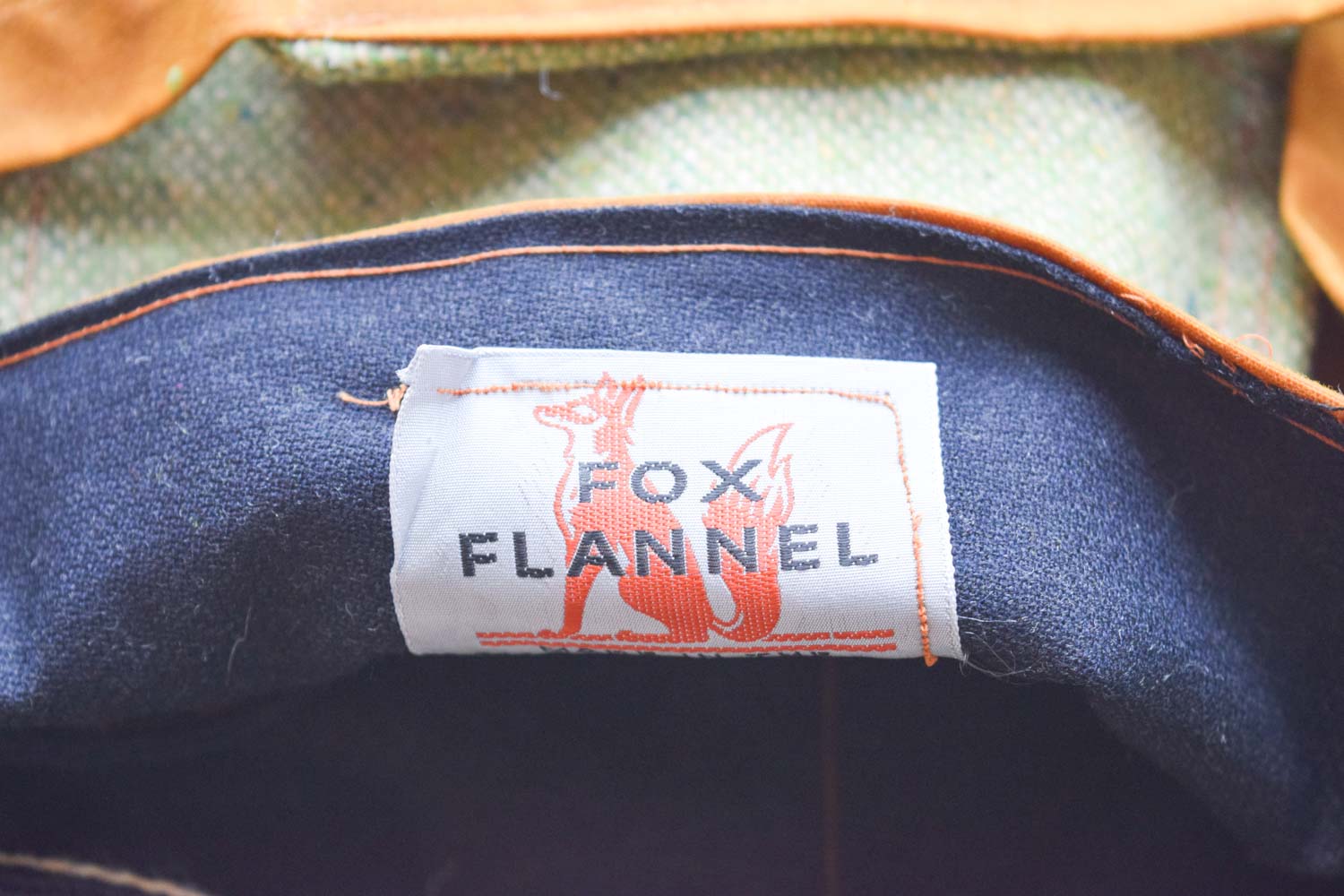
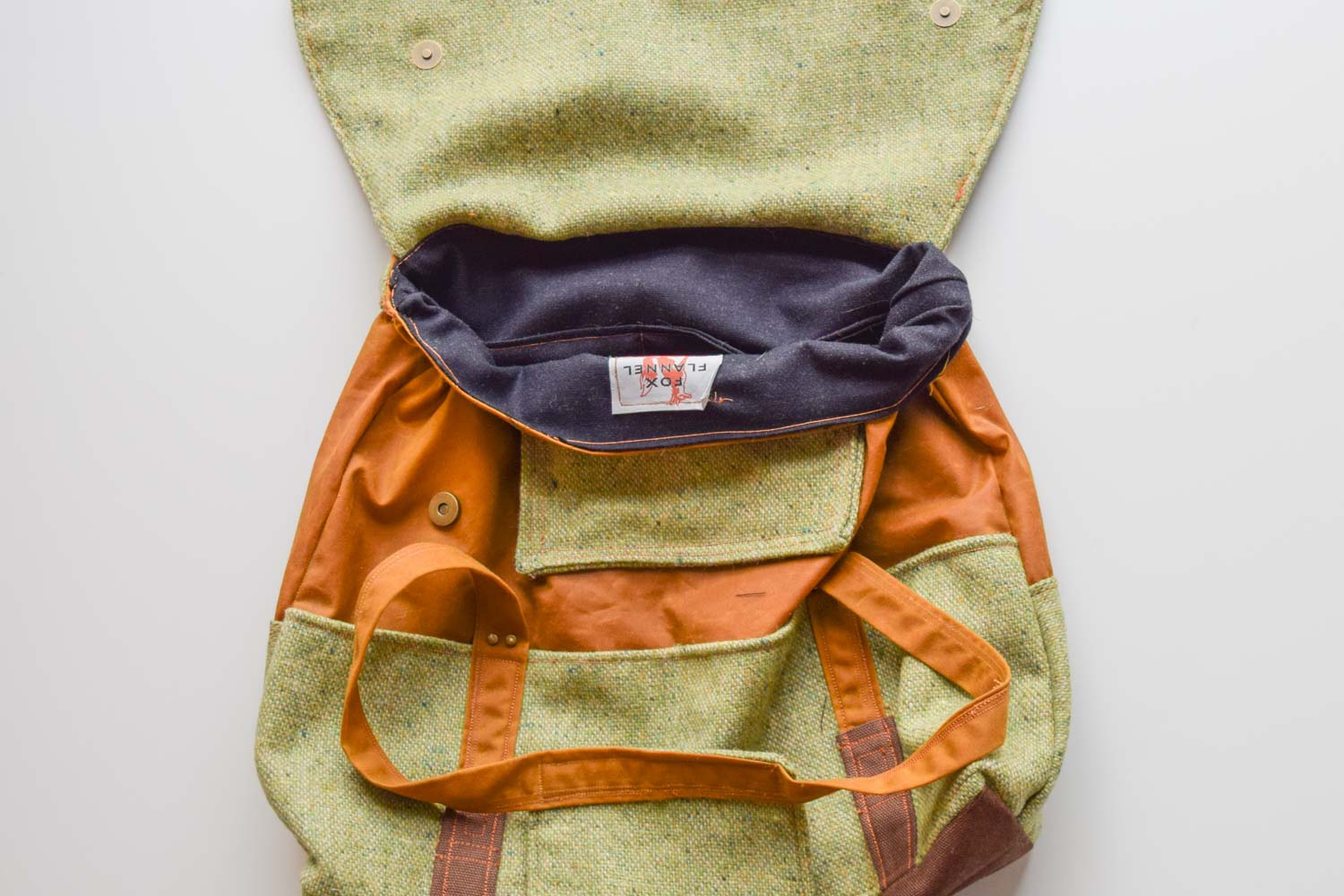
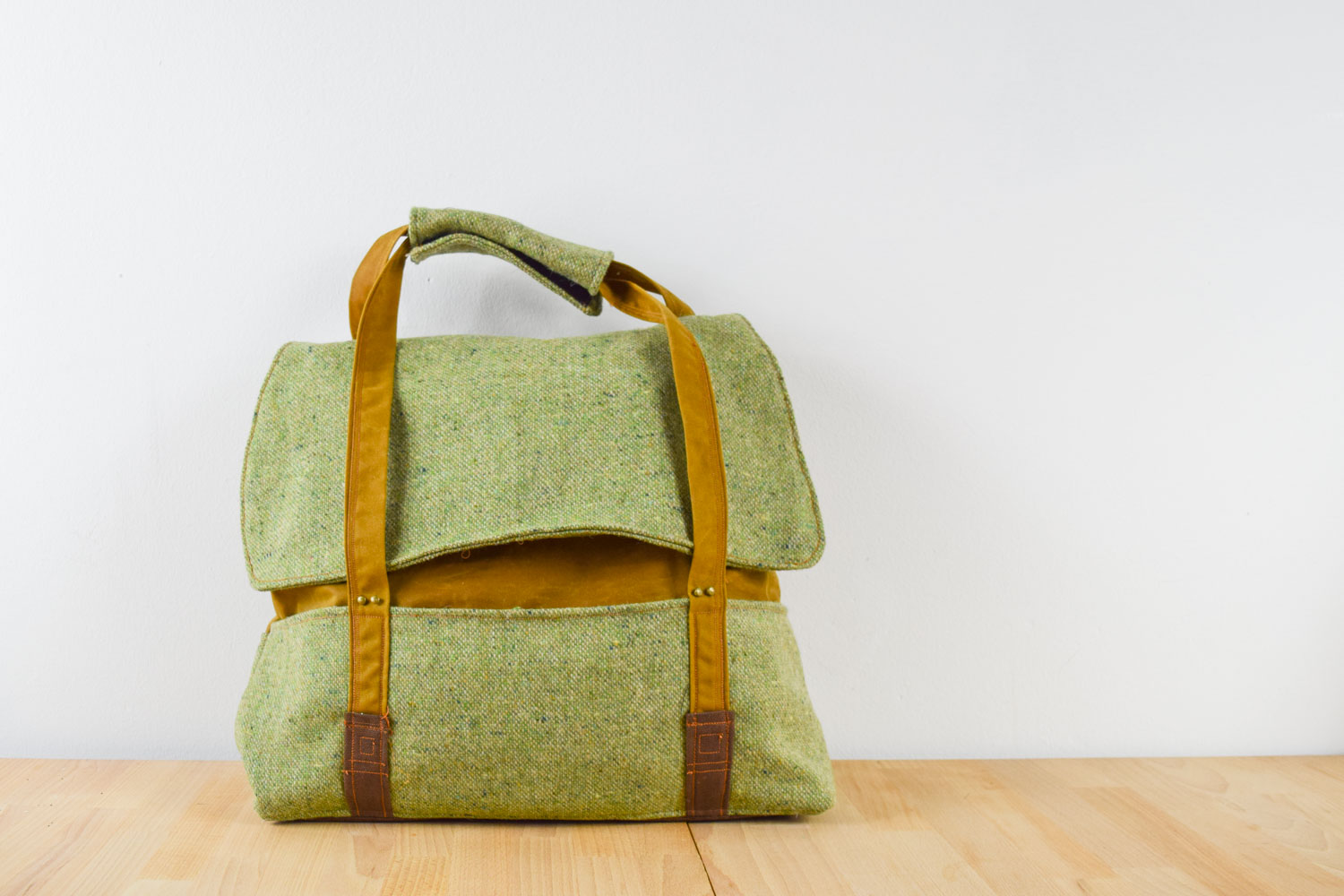
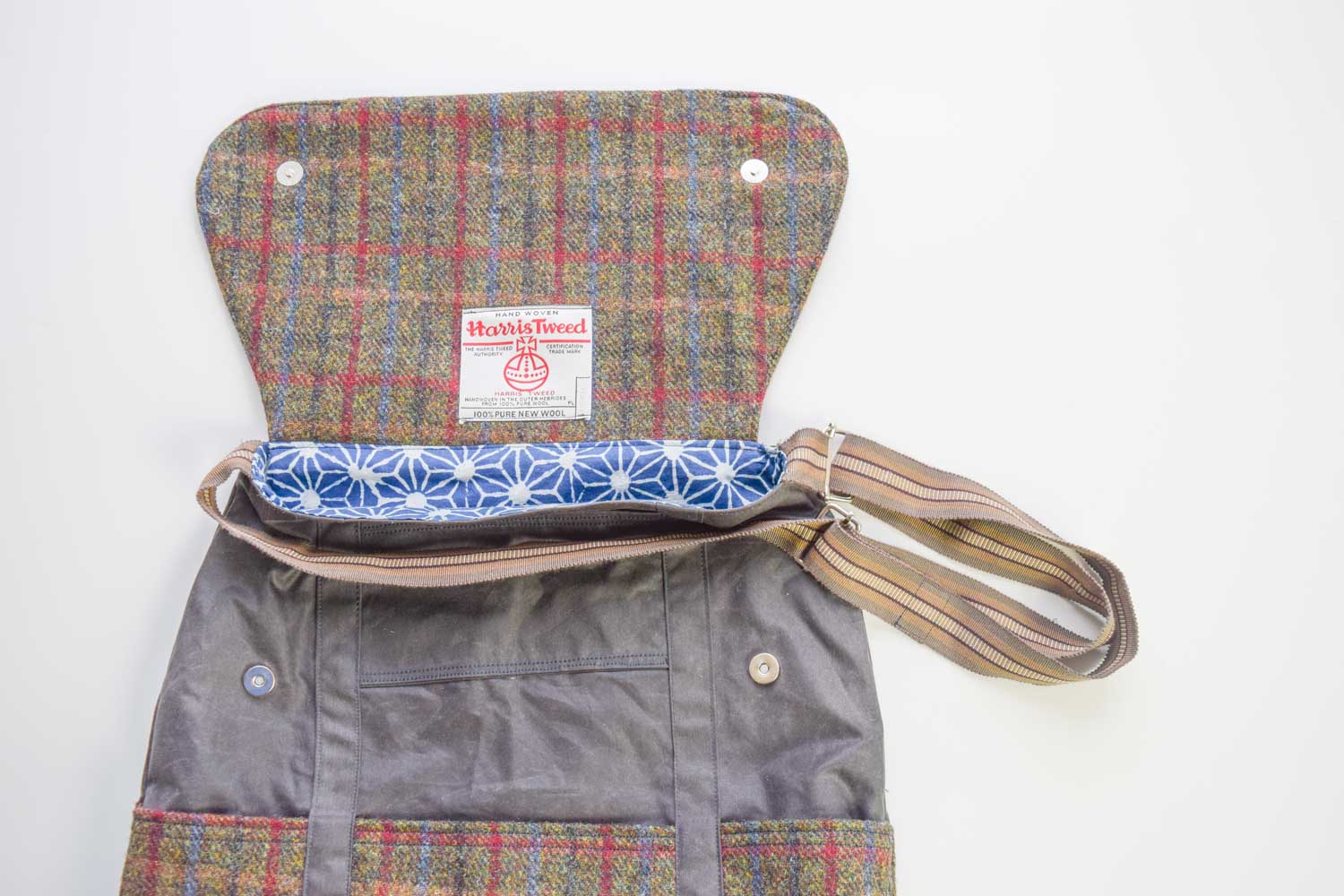
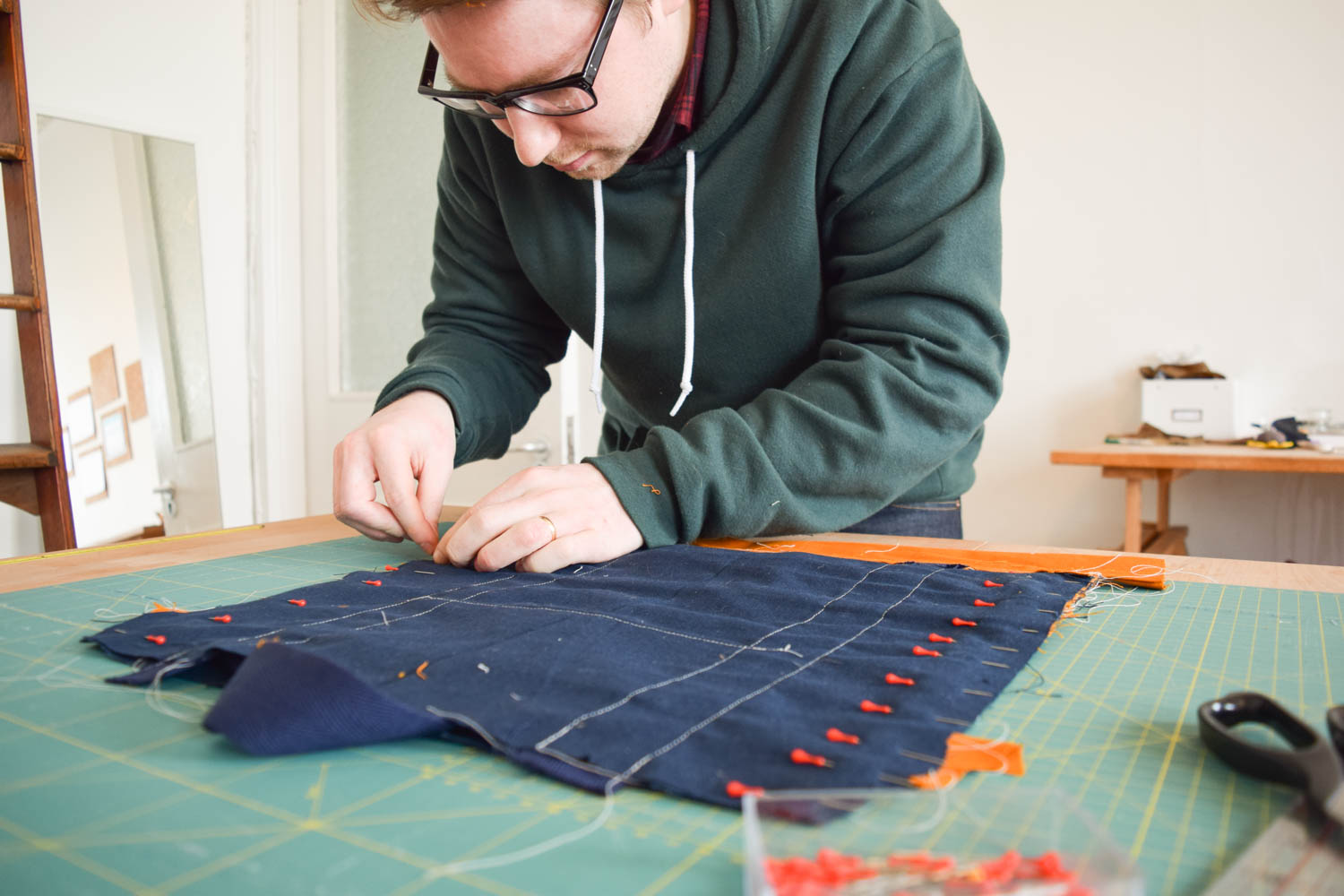
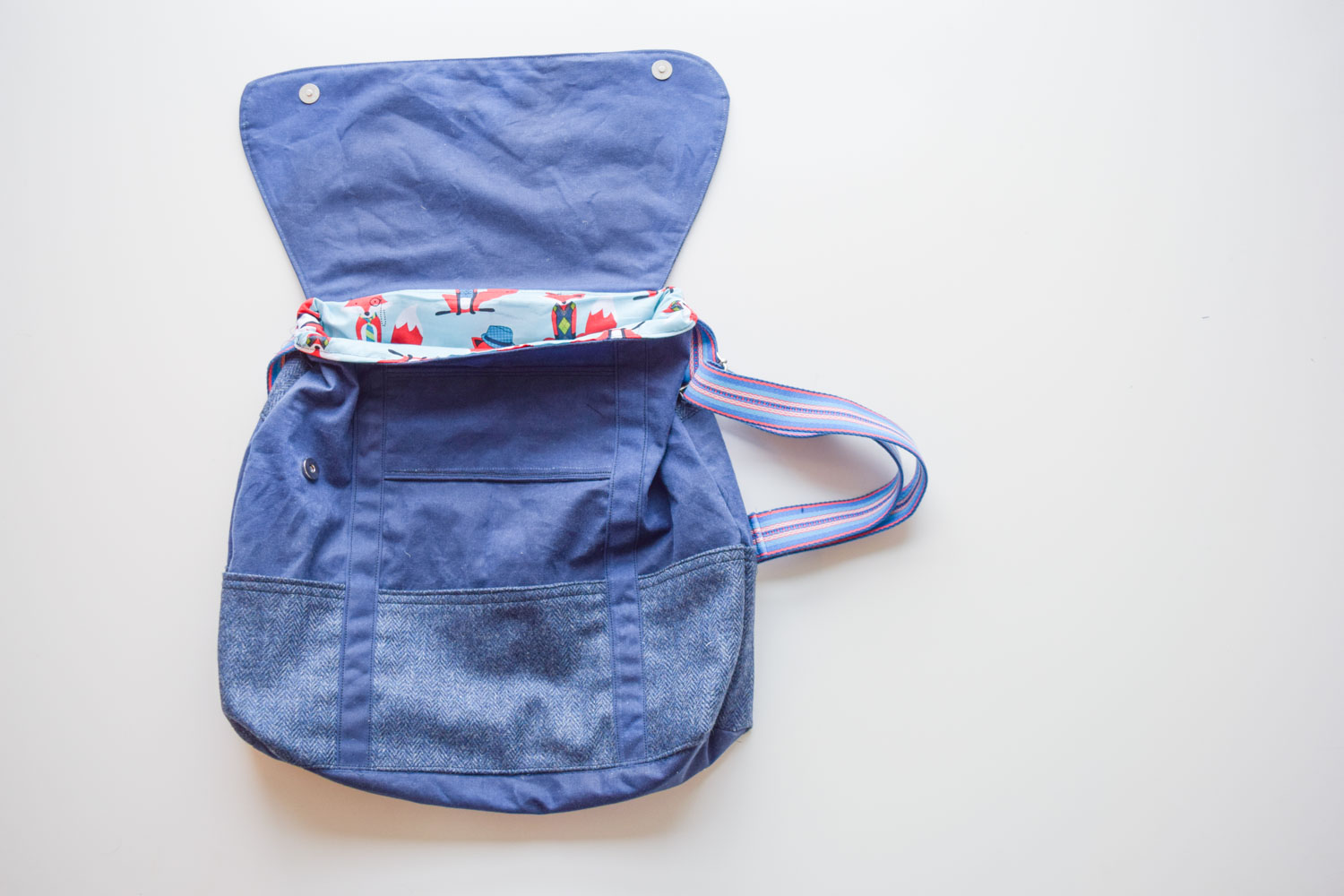
What Do I Need to Bring?
1. FABRIC
Your main fabric, contrast fabric (optional), lining fabric, and webbing (optional). We've given more details on these in the section below.
2. BASIC SEWING KIT
As with most of our courses, you'll need a basic sewing kit. We've listed some of the most common items further down the page, and all of them are available to purchase at our studio.
3. HARDWEAR
You will need to source hardware, such as rivets and sliders. Visit the Cooper Bag pattern page and click on 'Supplies' tab to see what you'll need. Please email us if you need advice or help sourcing these items.
Do I Need My Own Sewing Machine?
Students are not required to bring their own machines to class, but are welcome to do so if they wish. The Stitchery has ten CXL301 machines available for student use (which is enough for even our biggest classes) and various specialised machines such as Overlockers, Coverlockers and an Industrial machine. We also sell a range of Janome sewing machines and offer discounted prices to all our students.
How Do I Pay My Balance?
If you booked your place by paying a deposit, you're balance is due no less than 14 days before the date of the workshop. For instructions on how to pay your balance please visit our balance payments page
If you are no longer able to attend the workshop, please let us know as soon as possible so that we can offer your place to someone on the waiting list. If you are cancelling your place, please check out the our Cancellations & Refunds Policy on the FAQs page before proceeding.
Fabric & Supplies
BASIC SEWING KIT
You will need some basic tools. We've listed the common ones below. All of these are available for purchase at our studio:
- Fabric scissors
- Thread snips/embroidery scissors
- Seam ripper (you can use embroidery scissors if the tip is sharp)
- Dressmaking pins
- Thread
- Tape measure
- Sewing gauge
- Temporary markers
FABRIC TYPES
Your Cooper Bag is made up of 2 to 4 fabrics:
- Your main fabric - This is for the main body of the bag.
- Your contrast fabric (optional) - This is for your contrast panels, such as flaps, bottom panels and other details.
- Your lining fabric - This is for the internal faces of your bag.
- Webbing - This can be pre-made webbing that you purchase or self-made webbing that you create from your main fabric.
In this lovely student example, the main fabric is Oil Cloth, the contrast fabric a mustard yellow tweed, and the lining an interesting bird print cotton.
Some students may wish to use the same fabric for their main and contrast panels, and only introduce contrasting colour in their lining. As in this student example below.
In this example the main fabric is used throughout, even in the contrast panels. Contrast colouring is then introduce in the lining.
Here are some suggested fabric types that are suitable for your Cooper Bag:
- Main & Contrast Fabrics - Canvas, waxed canvas, cotton twill, denim, heavy ticking.
- Lining - Nylon twill, nylon ripston, cotton ripstop, light to medium weight waterproof fabric, medium weight 100% cotton.
Colette have a whole bag (ehem..) of good advice about fabric types on this blog page.
FABRIC AMOUNT
The amount of fabric you'll need for your bag will depend on two things: The version you're going to make and the width of your fabric.
Version 1
Messenger Bag
Version 2
Backpack
Version 3
Satchel
The table below is taken directly from the Cooper Bag page on the Colette Patterns website and shows you how much fabric you'll need for each version and fabric width (these are standard fabric widths).
Note that the measurements are given in Yards and Inches. In the UK, 45" fabric is 115cm wide and 60" fabric is 150cm wide. Also, we generally order fabric in metre lengths, so you will need to convert. Google works well for this!
SHOPPING FOR FABRICS
Remember there's a great guide from Colette on suitable fabrics for your bag. Click here to visit that page.
Students are free to purchase their fabric from wherever they like, but we don have some recommendations. If you're looking for heavier weight fabrics, such as Oilcloth, Canvas, and Denim, then Merchant & Mills is a good online resource.
There are also a small handful of local fabric shops in Glasgow, such as Mandors, Remnant Kings and John Lewis Fabric Department.
If you're looking for a little help choosing fabric types for your chosen pattern, we happily recommend The Splendid Stitch; a fabulous online store based here in the city. The Stitchery has our own dedicated section on their site, with a handy course-by-course guide on what fabrics are suitable for each pattern. Access this by going to the sewing schools section and entering THESTITCHERY (capitalised and no space) in the box; then click 'Go'.
Note that Stitchery students can receive 10% off their first purchase at The Splendid Stitch by simply entering THESTITCHERY again in the discount code box at the checkout. And if you do wish to see any of the fabrics in person, please contact Amy at the Splendid Stitch directly.
If you're unsure about your fabric choice, then you can always purchase a sample and arrange to bring it in to the studio for us to look at before your course begins.
NEEDLES
Please bring suitable needles for your project. A pack of mixed heavy universal needles - sizes 100 / 110 / 120 is useful. You may also want to bring Topstitch needles if you are planning on using topstitching thread. Denim needles are useful for thicker more densely woven fabrics like canvas / denim. If you are using leather, you should bring leather needles. We have some of these for sale in our studio. Please email us to check and we can put aside supplies for you.

